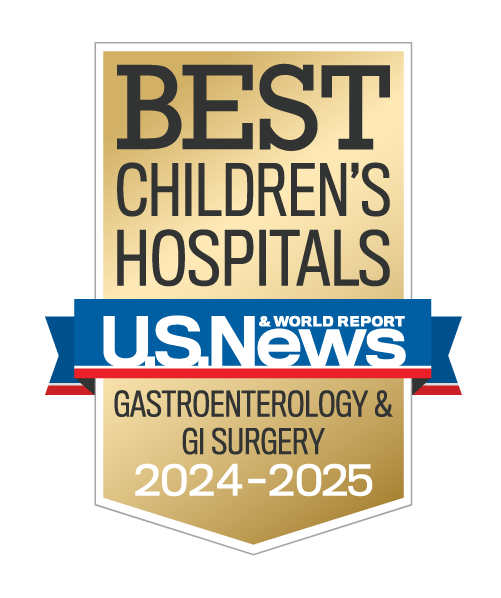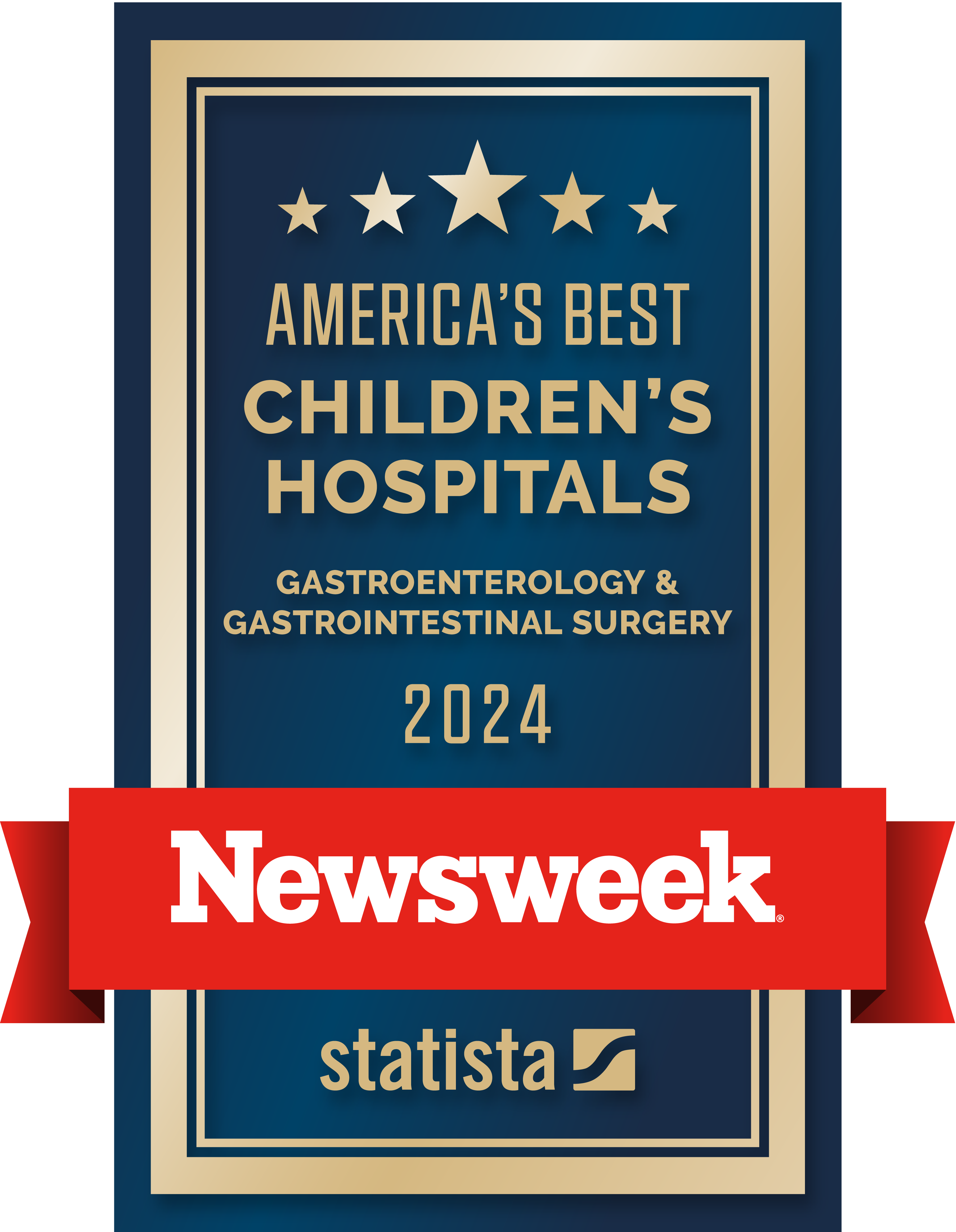“Motility” is a term used to describe the contraction of the muscles that power the gastrointestinal tract, a system that includes the mouth, esophagus, stomach, small intestine, and colon. In gastrointestinal motility disorders, these contractions are abnormal — they can be too fast (as with diarrhea) or too slow (as with constipation).
Children with motility disorders can also experience pain in the gastrointestinal tract. In other cases, motility may appear normal but the nerves in the gastrointestinal tract are too sensitive, so that even normal muscle contractions or the presence of stool or food in the bowel may cause pain. They are known as functional disorders.
Our expertise in motility and functional disorders
The clinicians at the Motility and Functional Gastrointestinal Disorders Center at Boston Children’s Hospital have the unmatched experience, skills, and knowledge to address even the most challenging pediatric motility disorders. We are the only center of our kind in the U.S. that offers a unique combination of services covering all facets of motility and functional disorders. That is why families travel from across the country — and around the world — to seek care for their children at Boston Children’s. We routinely see and treat children with gastrointestinal motility and functional disorders that others might consider rare.

As one of just a few medicine-based motility and functional gastrointestinal centers in the country, we take a biopsychosocial approach to care. We prefer to manage motility and functional disorders with medication and adjunctive therapies. This approach focuses on the whole child, not just their gastrointestinal tract — and may eliminate the need for surgery altogether in many cases. When surgery is necessary, our pediatric motility specialists work with the skilled surgeons at Boston Children’s to deliver the most effective procedures possible.
Our clinicians are leaders in the field of motility and functional disorders, and they've pioneered and perfected the use of many leading-edge therapies for these conditions. Because motility and functional disorders can have effects well beyond the digestive tract, our clinicians draw on expertise from several different disciplines, including gastroenterology, psychology, pain, allergy, and urology.
Learn more about our comprehensive programs:
- Advanced GI Motility Center: Our specialists provide advanced testing and treatment for complex motility problems.
- Functional Abdominal Pain Program: Our program team includes a GI specialist, psychologist, pain specialist, social worker, nutritionist, and physical therapist, and focuses on a biopsychosocial approach to the treatment of children with chronic abdominal pain.
Our team also includes child psychologists, dietitians, and social workers to address all aspects of your child’s well-being, from emotional health to nutrition to school reintegration. The result is a personalized therapeutic plan that takes every facet of your child’s gastrointestinal motility disorder into account. In most cases, you and your child can meet with multiple specialists in one day — all without leaving the center.

‘Life-changing’ appointment helps Georgia cope with motility issues
Born with a rare type of motility issue known as CIPO, Georgia is now thriving, thanks to the care she’s received at Boston Children’s.
Our approach to motility and functional disorders
Using highly precise tests, we can provide you and your child with the answers you need, making the concrete diagnosis you’ve been seeking. Some of these tests are invasive, but the team at Boston Children's has years of experience making them as comfortable as possible for young patients and their families. Many of our tests use minimally invasive techniques.
To properly diagnose and treat your child, an evaluation plan may involve one or more of the following:
- Anorectal manometry
- Antroduodenal manometry
- BRAVO Placement
- Colonic manometry
- Esophageal manometry
- Nuclear medicine studies
- pH Impedance study
- X-rays
One considerable advantage of testing and treatment at Boston Children’s GI Motility Center is the availability of coordinated appointments and testing during the same evaluation period. While there is always the chance that additional evaluations may be needed — some of which may require a hospital stay — most visits can be scheduled within a few days. Depending on your child's condition, they may need to see specialists from other programs or centers at Boston Children's. We do our best to make those visits convenient for your family and comfortable for your child.
Following your child’s diagnosis, we then recommend the most appropriate treatments for your child. These can include the latest and most advanced treatments for gastrointestinal conditions ranging from gastroesophageal reflux disease (GERD) and constipation to Hirschsprung's disease, pseudo-obstruction, achalasia, and functional abdominal pain.


